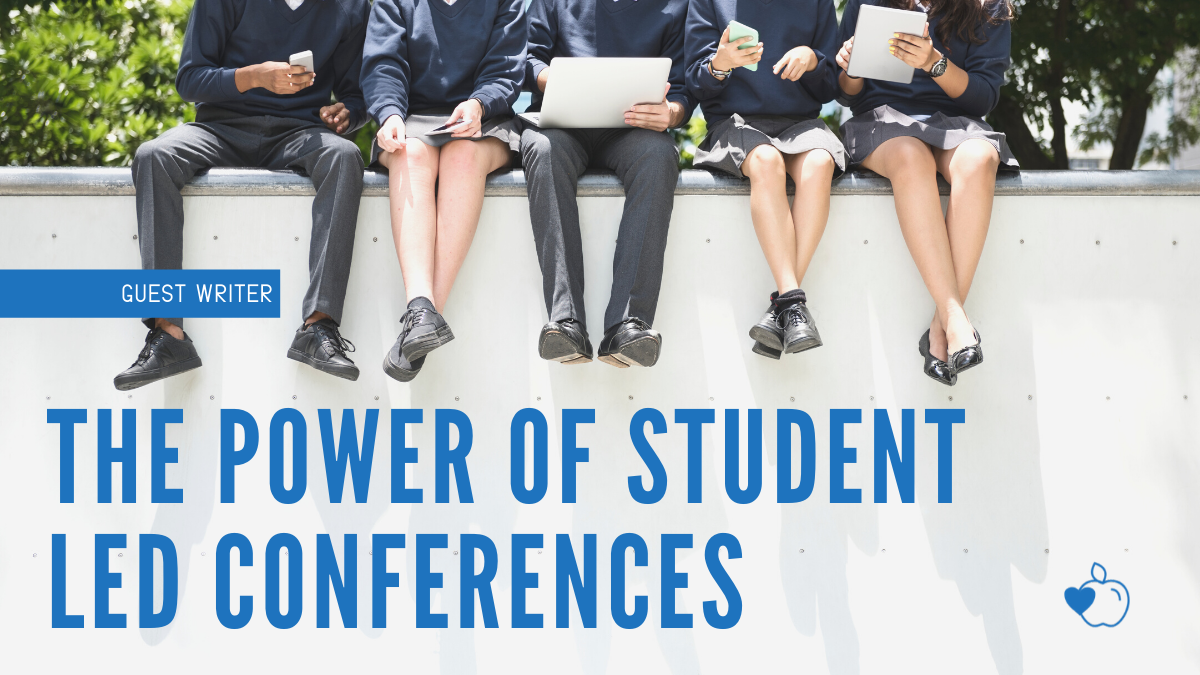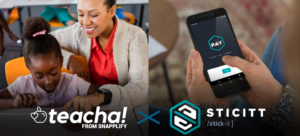As not just a teacher but also an avid advocate for student voice within inclusive education research, I firmly believe that empowering our youth to recognise the power of their voice and to truly value that, takes work – an important work that begins in our schools. It is also a work that involves a collaborative and supportive effort between teachers and parents to encourage positive student-parent-teacher conversation and dialogue.
For years, parent-teacher conferences have been the norm in terms of school to home communication about the progress of individual learners. Very often, the conversation is centred on how both the teacher and parent/s view a child’s current performance and ability, with very little feedback ever being presented back to the child. How the child reflectively views themselves, their individual strengths and weaknesses and their desired goals for themselves is left out of the equation and their own voice is “silenced”. However, Student Led Conferences is a global trend in education that aims to drastically and positively change this.
A year ago, my school decided to boldly give our learners a chance to lead the conversation. Having sat through my third round of these conferences earlier on this year, I can honestly say that I am blown away by just how well each child manages to rise to the occasion and take accountability and control over their own learning outcomes. Held at the end of the first term and again at the end of the year, the children are given time to reflect on their performance and abilities, set personal goals for themselves that are individually driven, and come up with practical plans of action to help them get there. The power does not lie in the conversation itself, but in the personal ownership and self-advocacy that this platform generates.
Reasons for Student Led Conferences (SLC’s):
- Learners are given a platform to take ownership of their own learning experiences
- Learners are given the opportunity to develop their level of independence
- Self-reflection activities encourage identification of areas in need of improvement
- SLC’s create a platform for learners and parents to celebrate successes and instils a sense of pride
- Confidence is boosted as learners are able to share their learnt knowledge and skills
In order to ensure a successful conference, we as teachers need to support our learners with the necessary tools and preparation needed to feel confident enough to take control of the discussion. Remember, many of the learners in our classes have never really been given a supportive platform in which to talk about themselves to their parents/care givers openly and honestly, and so a little guidance goes a long way!
Prepping for a Student Led Conference
• Letter of invitation – about a week before the conference, our school likes to send out a formal letter informing the parents about the upcoming conference and include a personal invitation from each child inviting their parents in their own way.
• Portfolio prep – in the build up to the conference, learners are given assistance in putting together a portfolio showcasing selected works that they would like to show their parents. I like to encourage them to select works that they are both proud of but also works that they feel they could have improved on – it is important that prior to speaking to their parents, they are able to share with you the reasons why they selected each particular piece. Included in these portfolios are also goal reflection sheets which serve to support a discussion about each child’s performance and goal plans.
• Tour of classroom and rehearsal – in my class, we like to begin each conference with a tour of the classroom and so the children practice this too. We then do a run through of their portfolio and goal reflection sheets so that they feel confident in the order in which they will progress through their discussion.
It is also important to provide learners with the crucial prompts necessary to steer their conversation purposefully. I encourage all my learners to end of their conference by asking their parents if they have any questions. This is always quite a daunting task for them but one that is deeply rewarding as it stimulates a supportive conversation that more often than not, includes comments soaked in pride and genuine questions of how parents can support their child in achieving the goals they have set for themselves.
Witnessing a child express to their parents what they feel they have excelled in and what they feel that they can improve on is inspiring. In some cases, this is actually the very first time that children and parents are actively engaging in positive conversation that centres completely on the child’s learning experience. Learners are given the opportunity to express to their parents who they are as a learner- how they learn best, what they benefit from and what they would like assistance with. Feedback from so many of my parents indicates that they are given an opportunity to see their child in a way that they have never seen before – that they are self-assured, honest and empowered.
From a classroom perspective, these conferences have also enhanced the level of individual focus that is placed on each child and their goals – when a goal is set not only by the teacher but from the heart of the child, the value of that goal drastically increases. Suddenly, there is a personal investment and a sense of teamwork grows.
By creating platforms within our schools for children to develop confidence in speaking about and valuing themselves, as well as encouraging accountability – we are investing insurmountably in the much needed promise of a generation of leaders and change makers.
Stacey Kirk is currently practicing as a Grade 4 remedial teacher at a remedial school in Johannesburg. Having entered into a remedial teaching environment four years ago after gaining four years prior experience in a mainstream school as a Grade 6 English teacher, she found herself in the fortunate position of living out her passion while enriching her knowledge of practice on a daily basis.
She recently obtained her Masters Degree in Education with a specialization in Inclusive Education from Wits University and she is deeply passionate about providing effective learner support to those who experience barriers to learning.
Stacey has a heart for sharing knowledge of practices and effective
teaching strategies with fellow teachers out there.
For more articles and information about Stacey, visit here awesome blog, Reaching Beyond the Blackboard here or visit her Facebook page!




